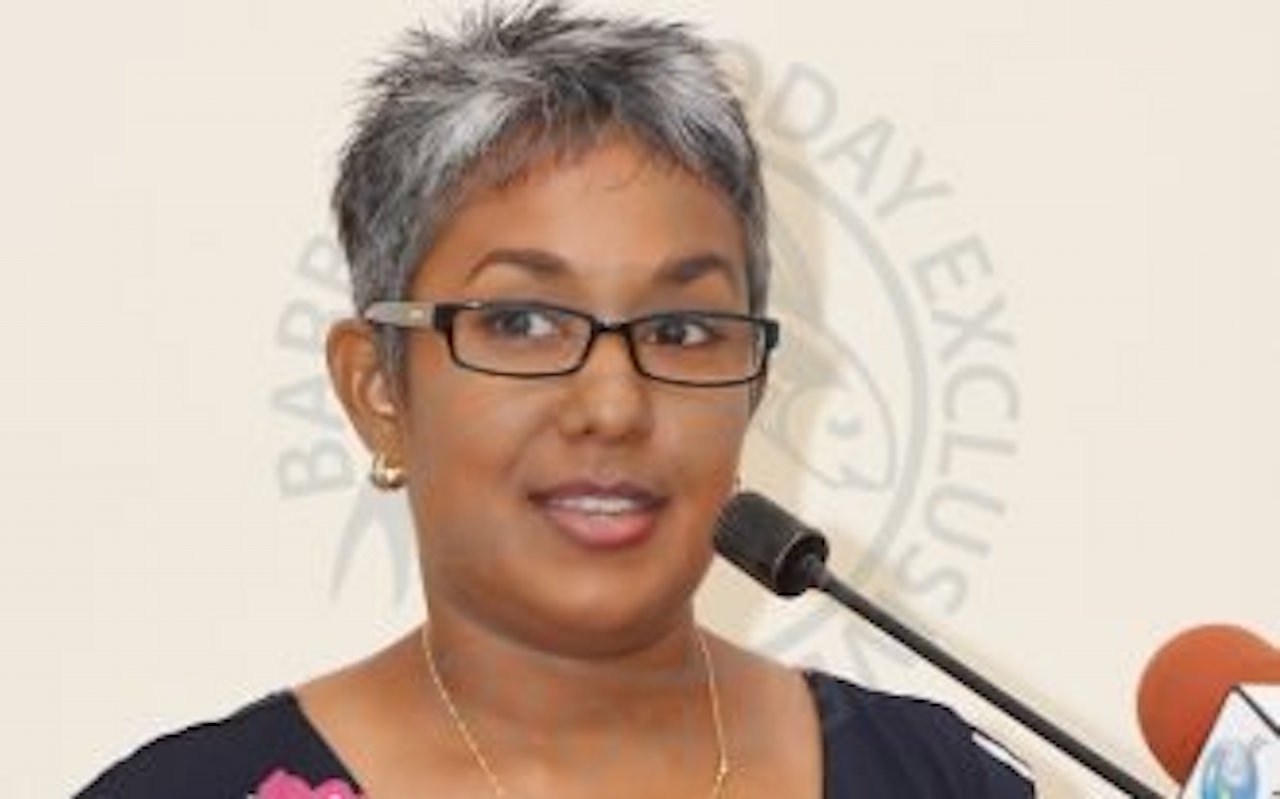One economist in Barbados is questioning if the European Union’s (EU) decision to “blacklist” Barbados and other countries recently had anything to do with race.
Regional economist Marla Dukharan raised the issue in her June 2020 economic report, which also questioned if the EU’s tactic should be considered bullying.
In May of this year the EU identified 28 countries as “high-risk” for money laundering and terrorist financing.
Included in that list were Caribbean countries Barbados, Guyana, the Bahamas, Guyana, Jamaica and Trinidad and Tobago, which the EU said had “strategic deficiencies” in their national anti-money laundering and counter-financing of terrorism regimes that pose significant threats to the EU’s financial system.
Saying that the EU’s so-called blacklist was not surprising, Dukharan acknowledged that EU member states were glaringly absent from the list, while accusing the EU of “weaponizing” its rules by “arbitrarily, unilaterally, selectively, and disproportionately” imposing them on certain hapless non-EU members, with no known recourse for these ‘blacklisted’ countries.
“Ranging from a low of nine per cent in Hungary to 34.4 per cent in France, average EU corporate tax rates are higher than the global average. This is likely one of the key reasons why the EU is internationally uncompetitive, as outlined above. But why are EU taxes so high?” said Dukharan.
She said: “Perhaps the EU is a bully [and] instead of addressing its domestic problems with appropriate domestic policies, the EU aims to export its problems by ‘blacklisting’ non-EU countries which dare to exercise their sovereign right to set their own domestic corporate tax rates ‘too low’, thus effectively destroying the competition.
“Perhaps the EU is a racist institution – not all low-tax jurisdictions get ‘blacklisted’ by the EU – this classification is reserved only for those with predominantly non-white populations, naturally,” she said.
“The EU consistently omits its own low-tax members Hungary and Ireland, the USA’s states of Delaware (69.2 per cent Caucasian) and Nevada (68.1 per cent Caucasian), and UK overseas territory Gibraltar (Gibraltarian 79 per cent, other British 13.2 per cent), among others,” she argued.
Dukharan also questioned the EU’s level of fiscal prudence, saying its average debt to gross domestic product ratio was still about 20 percentage points higher than the average of the “blacklisted” countries.
Stating that the EU did not limit its “blacklisting” to tax policies, the regional economist pointed out that the consequences of such lists should not be underestimated as they are of an “economically existential magnitude” for these developing countries.
Other countries identified on the recent list are from Latin America and Africa, the Middle East and Asia.
Among the consequences of being on the EU list of non-compliant nations is that banks and other gatekeepers are required to apply “enhanced vigilance” in business relationships and transactions involving high-risk third countries.
Dukharan said: “Furthermore, these (black)listed countries are subject to sanctions by the EU. And perhaps most damaging of all is the fact that banks in Europe and North America are in effect compelled to ‘de-risk’ banks from these listed jurisdictions by withdrawing or reducing correspondent banking services, and in many cases even physically exiting these jurisdictions.”
Seemingly likening the EU’s behaviour to that of the recent white police officer involved in the death of black-American George Floyd, Dukharan said: “The withdrawal of correspondent banking services from these small, open, soft-currency jurisdictions is, in effect, to place a knee on the carotid artery of their economies – with socio-economic consequences that no small, developing country can survive, especially in this pandemic.”
Stating that the EU laws exclude predominantly white EU states from appearing on the so-called blacklists despite evidence of non-adherence to their own standards and rules, Dukharan added that there were also glaring omissions of predominantly white non-EU jurisdictions that were “well-known money laundering hotspots”.
She said: “Presumably for political and or economic reasons Gibraltar, London, Russia and the USA, for example.”
“Evidently, we, the former European colonies, are being held to a higher standard than our former colonizers, by our former colonizers. We are still denied the sovereignty to manage our domestic affairs – even in a manner similar to that of our former colonizers,” she said.
marlonmadden@barbadostoday.bb




